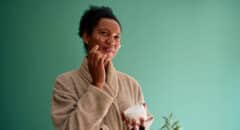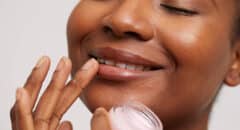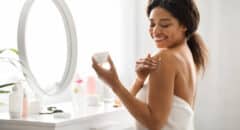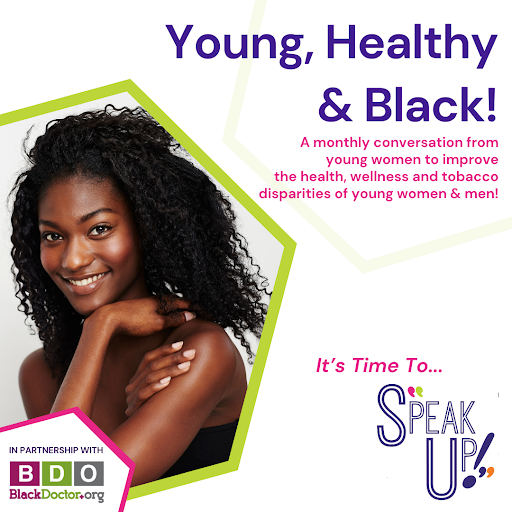
Hey, lovelies, I’m so glad you landed here! It’s finally summertime, and she ain’t playing no games! The heat, humidity, and air quality are about to take me out and there’s no edge control that can tame my edges. After experiencing cautious joy and scary freedom during the pandemic, this is the perfect time to live and enjoy being outside-not in. While y’all are out frolicking at summer concerts, on trips, and on cruises (stay out of suspicious submarines) I hope you’re also wearing sunscreen and being healthy. I know there are many misconceptions about sunscreen for those of us with more melanin. So, let’s get into it!
Did you Know?
- Melanoma is the most common cancer in the United States.
- Melanoma is the most dangerous skin cancer and caused 7,650 deaths in 2022.
- Black people are three times more likely to be diagnosed with melanoma at a later stage than white people.
What is Melanoma?
Melanoma is a cancer that begins in the melanocytes, cells that produce melanin (the pigment that gives your skin its color). Since melanoma cells still produce melanin, tumors are typically black or brown and occasionally pink, tan, or white. It can develop anywhere on the skin, but for men, it typically starts on the chest and back, and for women on the legs. Although less common than forming on the skin, it can also form in the eyes, mouth, genitals, and the anal area.
The cause of melanoma is a combination of genetic factors, environmental factors, and excess exposure to ultraviolet (UV) radiation from the sun and tanning lamps. People with a fair complexion, blonde or red hair, blue eyes, and freckles are at increased risk of developing melanoma.
However, skin cancer does not discriminate, people of color can also develop melanoma. For people who have darker skin tones, melanoma is more likely to be on the soles of the feet, the palms of the hands, and under the nails.
RELATED: Top 4 Sunscreens for Black Skin
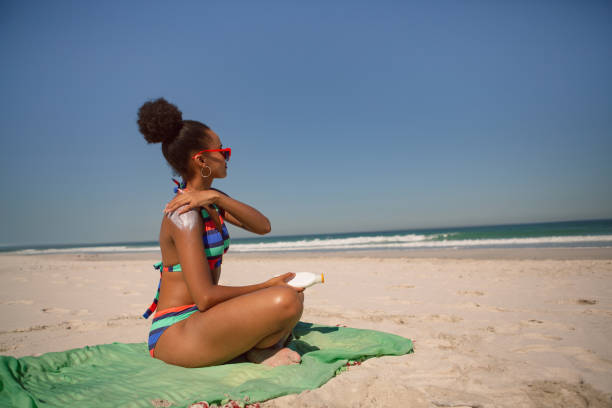
So, do Black People Really Need to Wear Sunscreen?
Scrolling on social media is my favorite way to avoid my responsibilities. I was on TikTok one day and saw a video about Black people not needing sunscreen because our melanin is our natural protection.
Then I had a friend tell me that she uses shea butter as sunscreen at the beach (I know she was cooking like fried chicken in a cast iron skillet). It was at that point that I knew we needed to have a kitchen table talk/read.
While our melanin does offer us protection, our natural SPF is very low. Also, when thinking of our ancestors and how they didn’t have sunscreen to protect them against the sun, we have to put that statement and timeframe into context.
Baby they had a real ozone layer. We are living in peak environmental disaster and need to use all the sunscreen we can. I know “Black don’t crack,” but if you don’t wear sunscreen daily, then you’ll be aging like milk.
For all my skincare girlies, if you’re working on hyperpigmentation, wearing sunscreen needs to be embedded in your routine. Dermatologists recommend using an SPF of 30 or higher that provides broad spectrum coverage with reapplication every two hours, especially if you’re outdoors.
And yes, you can wear sunscreen and makeup! As much as I want us all to be outside having fun, I want us to be healthy and safe even more. Please wear your sunscreen, stay hydrated, and stay cool.
Closing
Whether you’re at the beach, on a hike, or reading under a tree, you need to wear sunscreen. Melanin, in all its beautiful shades and glory, is not a fair fight against overexposure to the sun.
There are so many different types of sunscreens, so find whichever one works best for you, pack a water bottle & fruit, and your favorite shorts, and live your best life!
Be on the lookout for more articles from “SPEAK UP!” interns. If you are or know of any Black college-aged and enrolled women interested in the health and wellness of Black students on HBCU campuses, please visit Save a Girl Save a World for more information.
Aravia Patterson, MPH is a 27-year-old SAGSAW/SPEAK Up! Intern and Ph.D. Student at the University of Louisville studying Health Promotion and Behavioral Sciences.





